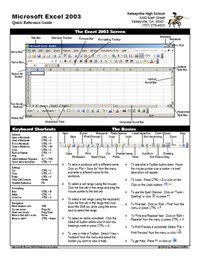Today we will begin discussing banking to prepare for our banking/checking simulation. During the simulation you will be using "checks", credit cards, debit cards, etc. to pay for services and merchandise. We will be applying for a job, filling out the necessary paperwork to start working, look at our pay stubs, pay our bills, balance our checkbook, etc.
Let's begin by looking at banks and credit unions:
- A bank is a for-profit company owned by investors in its stock. These stockholders elect a paid board of directors to manage the bank for them. Anyone can walk up to a bank and open an account.
- A credit union is owned by their customers, who are also called members. These members elect a volunteer board of directors (who are also members) to manage the credit union for them. Credit unions have membership qualifications. By law, each credit union must serve a defined segment of the population. To join a credit union, you have to work for or have a family member who works for an employer in that segment.










